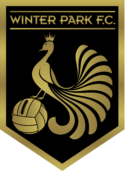Parents and Coaching from the Sideline?
I recently sat down with Coach Paul and asked him about his thoughts on parents coaching from the sideline. Here is our conversation.
Q – Shawn: Paul, you constantly preach the importance of not coaching from the sideline, why is that?
A – Coach Paul: Good question, the answer is simple.
The kids need no Instruction from the sidelines.
Kick it, GO GO GO, “Get it out of there” are all things that you typically hear from the sidelines when watching a youth soccer game. But are these instructions helpful to the player’s development or decision making?
At First Touch, we not only feel that these instructions do NOT help players but are detrimental to their soccer development and IQ. There are several reasons why we ask our parents and spectators to refrain from giving their child instruction.
Q – Shawn: What are some of the typical things you hear parents saying that really hurt the proper soccer development?
A – Coach Paul: It can be well-intentioned, but completely unhelpful, let me explain.
The classic Sideline Instructions are not good instructions.
We are always wanting our players to play with a purpose. Whether that is passing, dribbling or shooting. When players hear ‘KICK IT” or “GET IT OUT OF THERE” They are now no longer playing with a purpose but just accepting that kicking the ball anywhere is good enough. Typically when players do not play with a purpose the team loses possession and now the team has to win the ball back again. If the team doesn’t have the ball they cannot score a goal. The instruction GO,GO,GO hinders the player’s ability to think about changing direction and just encourages them to dribble forwards as fast as they can. At times if players are just encouraged to dribble forwards they may not have support from their teammates and maybe outnumbered when attacking. This will typically result in them losing the ball. We would encourage our players to turn and either play in a different direction or hold the ball up to allow teammates to support the play. Players will not think about these options if they hear parents or supporters screaming GO, GO, GO.
Q – Shawn: Do you have issues where parents go against coaching?
A – Coach Paul: It’s even worse than that, think about it this way.
Multiple Instructions really confuse the kids.
It is difficult enough for young players to improve their soccer IQ and start making the correct decisions. This becomes nearly impossible if players are hearing multiple instructions, often contradicting instructions. If a player hears an instruction from a coach and a parent this now creates a battle in his/her own mind of who he/she should listen to. They don’t want to ignore their parents because they are taught to do as they are told. They also do not want to ignore the coach because they know the coach is the person in charge of the team. Ultimately this leaves an impossible decision to make. Our answer to this is to eliminate that decision for the player. This way the player does not have any conflict or consequence when choosing to listen to either adult. Ultimately it takes twice as long to process all of the information and to decide what instruction to listen to.
Q – Shawn: Long term does sideline parent coaching cause issues?
A – Coach Paul:
It does, we don’t want to create robots.
First Touch Sports coaching staff are always striving to not only teach players to improve technically but cognitively as well. We always want our players to play with a purpose and be in control of the decisions that they make. The only way that this can happen is for them to actually make their own decisions. How many times do you hear coaches on the sidelines instructing players to pass or dribble or SHOOT, when their player has the ball. This leads to players becoming dependent on instruction and robotic in decision making. Our coaches have to adhere to our philosophy that players are to make their own decisions on the ball, whether they make the right or wrong choice. If they make the right choice we praise it, if it is the wrong choice we can correct and educate.
Parents are there to encourage players not to instruct them.
